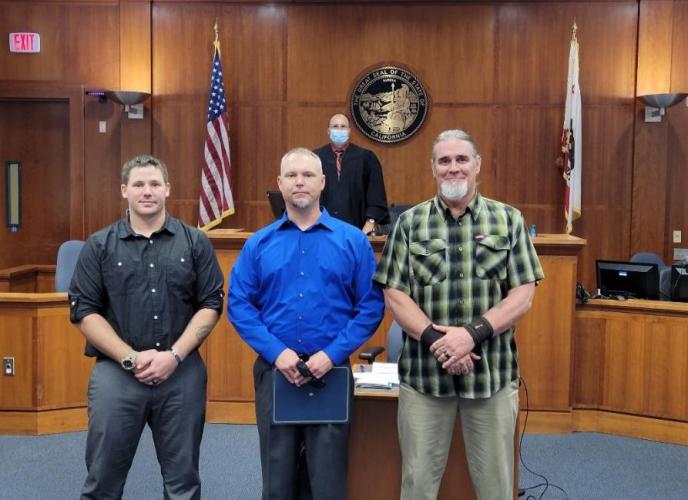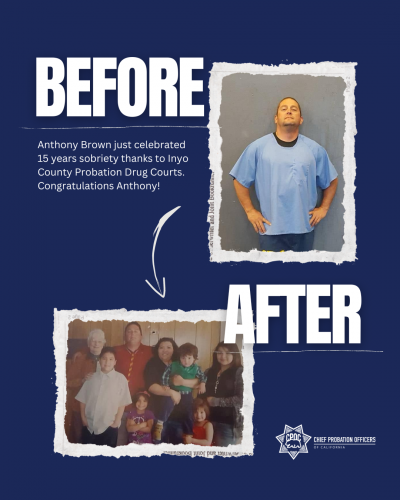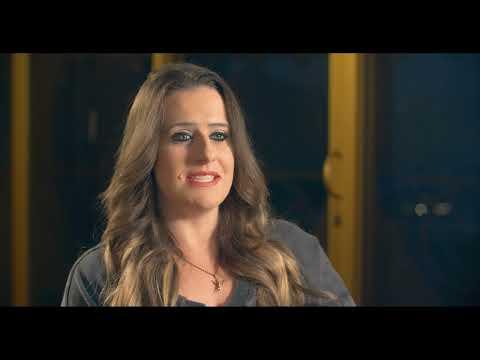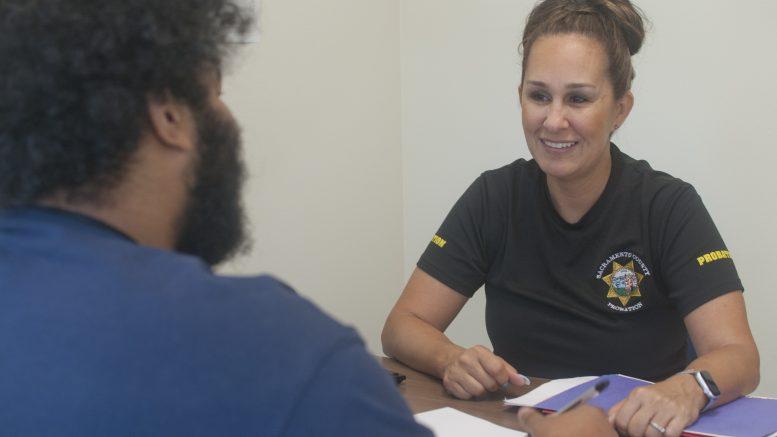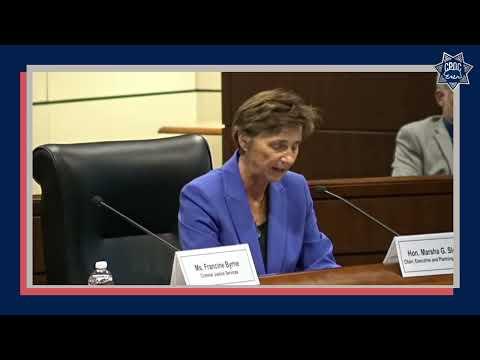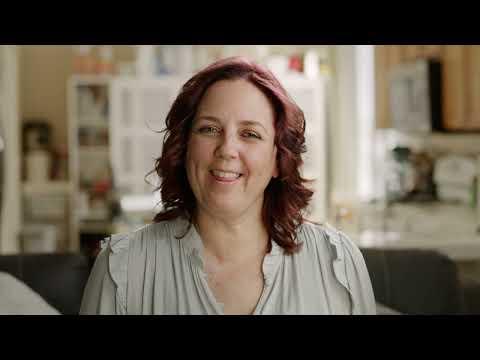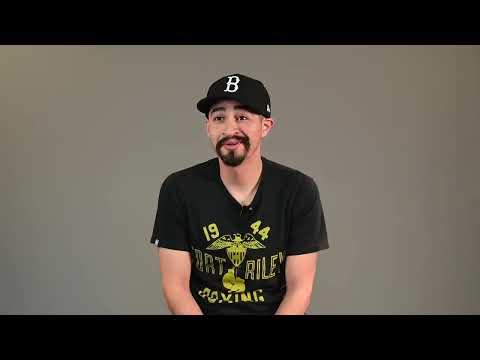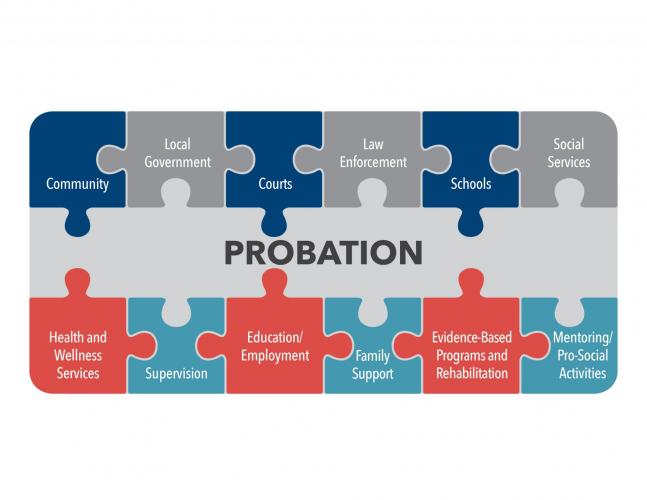Success Stories
Yuba County Probation Department Hosts Graduation Celebrating Recovery and Education Milestones
Graduates Highlight the Transformative Impact of Accountability and Rehabilitation in Creating Long-Term Community Safety
Marysville, CA. – On March 14, 2025, the Yuba County Probation Department celebrated the success of 11 individuals who completed the department’s outpatient substance abuse treatment program, For Our Recovery Families (F.O.R. Families), alongside six individuals who earned their high school diplomas. The graduation ceremony, held at the TEAM Center in Marysville, marked a powerful moment of resilience and transformation for participants working to rebuild their lives.
The Connector Newsletter – March 31, 2025
California Probation Creating Safer Communities Through Accountability & Opportunity
In this issue of The Connector, read stories of hope and inspiration of how California Probation is helping create safer communities by focusing on holding justice-involved individuals accountable while helping them transition out of the system permanently through transformative and evidence-based rehabilitation. Probation Departments are a connector in the justice system, interlacing and maximizing the resources available within our systems and communities to reduce recidivism by carefully balancing direct human services and research-based interventions.
Marin County Probation Inspiring Probationers Receive Public Ovation
A resilient and successful group of 17 is now recognized on Probation’s Wall of Change.
From Marin County Probation.
Marin County, CA – February 24, 2025 – The Marin County Probation Department proudly recognized 17 individuals who successfully transformed their lives after being on supervised probation. The honorees were celebrated at the annual Wall of Change ceremony, an event that began in 2011 as a small, intimate gathering and has since grown into a significant ceremony.
…During the event, two honorees, Seena Aguilar and Mohammed Majdoubi, shared powerful testimonies about their personal journeys.
Sena Aguilar, standing at the podium, invited her fellow honorees to stand beside her in solidarity, emphasizing that the moment belonged to all of them. She shared her story of growing up in an environment affected by alcoholism and addiction, experiencing trauma that led to instability.
“I came to the realization that I was powerless against alcohol and that my life was unmanageable,” she said.
“It was time to change, and that change began with the justice system. I saw it as an opportunity, not a punishment. With the right resources, and the support of my probation officer, recovery coach, and therapist, I was able to rebuild my life. Today, I am two years sober.”
The Connector Newsletter – December 23, 2024
California Probation Creating Safer Communities Through Accountability & Opportunity
In this issue of The Connector, read stories of hope and inspiration of how California Probation is helping create safer communities by focusing on holding justice-involved individuals accountable while helping them transition out of the system permanently through transformative and evidence-based rehabilitation. Probation Departments are a connector in the justice system, interlacing and maximizing the resources available within our systems and communities to reduce recidivism by carefully balancing direct human services and research-based interventions.
County Spotlight: San Joaquin County Probation Client Testimonial
California Probation’s collaborative work in re-entry services for those involved in the justice system, not only helps those within the system turn their lives around, but also helps make our communities safer for all.
For those interested in understanding the realities of formal probation, this video from San Joaquin County Probation highlights Jason’s journey of transformation. Growing up in the foster system, Jason faced significant challenges, which ultimately led to a life of crime and incarceration.
While many may believe the role of California Probation is to catch probationers violating their terms, the truth is, they strive to guide people toward successfully completing their rehabilitation which leads to long-term safety in our communities.
Jason emphasizes the turning point of taking accountability and the significant role his probation officer played in supporting him during his recovery journey. He credits his probation officer’s care and guidance for keeping him on track and fostering personal growth, stating that his officer provided unwavering support and helped him get access to helpful programs.
“My Probation Officer was a staple for my recovery!”
Jason’s story highlights the value of strong supervision and self-commitment in recovery, and the transformative impact of effective probation supervision. San Joaquin County Probation, for Jason, became a cornerstone of change.
Watch Jason’s story here.
California Probation across the state, provides a multifaceted integrated safety model that uses accountability and provides opportunity. Probation continues to successfully connect individuals to workforce development, substance use treatment, mental health services, family engagement, and educational opportunities.
The San Joaquin County Probation Department provides safe custodial care for juveniles and adults in ways that help uphold public safety. As a partner to and bridge between the Courts, the detention system, and the community, they provide the prevention, investigation, and supervision services needed to make the communities they serve safer and stronger. Officers and staff are committed to excellence, professionalism, and integrity. The Department’s shared values include excellence, importance of the individual, team concepts, ethical conduct, professionalism, importance of community and a safe and healthy environment.Veteran Treatment Courts Successful Across the State
Collaborative Courts are comprised of multi-disciplinary teams, who work to be responsive to the needs of the participants. They allow participants an opportunity to participate in evidence based treatment models as an alternative to traditional court processing. This week, in honor of Veterans Day, we are highlighting Veterans Treatment Court success stories from several counties.
SACRAMENTO COUNTY PROBATION:
While post-traumatic stress disorder affects millions of people, veterans suffer at higher rates than civilians, three times more for those who were deployed. According to the U.S. Department of Veterans Affairs, 11-20% of veterans who served in operations Iraqi Freedom and Enduring Freedom have PTSD in a given year. Approximately 12% of Gulf War veterans and an estimated 30% of Vietnam Veterans struggle with PTSD. Symptoms include persistent flashbacks or nightmares, difficulty with emotional regulation, particularly anger management, and reckless or self-destructive behavior. Through California’s Veterans’ Treatment Court, veterans facing criminal charges may be eligible for treatment rather than punishment.
“The most common [struggle] for vets is PTSD [and] TBIs, which are traumatic brain injuries, just from service. That can turn into addictions, can turn into anger issues, and those can turn into other criminal activities if it goes far enough,” says Kevin Cadena, senior deputy probation officer with Sacramento County.
Anthony’s Story of Justice and Recovery
From The Press Enterprise. By Anthony Martinez.
As our communities come together to celebrate National Recovery Month, I want to take a moment to share my personal journey. My hope is that by telling my story, I can help inform ongoing discussions about addiction and criminal justice, while offering some hope to those who struggle with addiction.
I am a recovered addict, and am proud to say I have been sober for almost five years. My recovery journey has been shaped by many factors, but a few stand out as the most important: my family, especially my daughter, who never gave up on me; my faith in God; the treatment programs like the one I attended at the Salvation Army; and, surprisingly, the justice system.
In particular, I am deeply grateful for one of my probation officers who treated me with respect and compassion, seeing me as a human being.
Butte County’s Drug Court Program Recognized Graduates & Members on Wednesday
May 8, 2024
by Camille Acevedo in Action News Now.
BUTTE COUNTY, Calif. - On Wednesday, Butte County’s Drug Court Program recognized graduates and current members who are overcoming substance use. And among the list of honorees, one couple is in the recovery process together.
Butte County Treatment Court marks National Drug Court Month with graduation ceremony
May 8, 2024
by Hannah Gutierrez in KRCR.
OROVILLE, Calif. — Butte County Treatment Court celebrated National Drug Court Month by hosting a graduation for individuals have gone through the program.
Inyo County Drug Court Graduate Celebrates 15 Years of Sobriety
By Julie Weier, Inyo County Probation Deputy Chief Probation Officer. Additional messaging by CPOC.
Recovery is an act of self-love, a reclaiming of your life and a new beginning full of possibilities. Anthony Brown created a new life 15 years ago when he entered the Inyo County Probation Drug Court program in 2009 and dedicated himself to a life of sobriety, forgiveness and living with a purpose. Mr. Brown successfully completed the program in June of 2011.
County Spotlight: Butte County Probation Drug and Veterans Treatment Courts Success
The Butte County Probation Department has four collaborative Courts. Collaborative Courts are comprised of multi-disciplinary teams, who work to be responsive to the needs of the participants. They allow participants an opportunity to participate in evidence based treatment models as an alternative to traditional court processing. This week, we are highlighting two of those courts, Drug Court and Veterans Treatment Court.
Drug Court:
Butte County Treatment Court (BCTC) is a post-conviction program for non-violent offenders who assess as high prognostic risk and high criminogenic needs for substance abuse and/or addiction diagnosis. The program is operated in compliance with the Ten Key Components and Best Practice Standards of Drug Courts, as established by the National Association of Drug Court Professionals (NADCP).
Some of the graduates include:
- Kayla Saise, has worked diligently over the last 3 years to create a new, successful, life for herself. She obtained employment, obtained her own residence, obtained her driver’s license, purchased her first vehicle, and regained custody of her child. Through it all, she has remained strong in her sobriety!
Veterans Treatment Court:
The Butte County Veterans Treatment Court (VTC) is a voluntary, Court-supervised program designed to offer justice-involved veterans an opportunity to participate in a treatment-based model as an alternative to traditional Court processing. The VTC is comprised of justice partners, veterans services groups, and community-based organizations who work together to create a collaborative, multi-disciplinary approach to treatment that is responsive to the needs of the Veteran and the community.
Veterans continue fighting even after their military service has ended as they struggle with substance abuse, mental health, and reintegrating into civilian life. With the help of the Veterans Treatment Court team, these veterans complete an intensive treatment program and period of probation supervision lasting a minimum of 12 months. Graduates fight hard to address their needs, complete the program, and have achieved a tremendous accomplishment.
Veterans Treatment Court was established in 2015, follows the National Drug Court model, and is tailored to the unique needs of veterans. The Butte County Veterans Treatment Court has graduated over 20 veterans from the program.
Some of the graduates include:
- Christopher Claxton, a United States Marine Corps member from 2006-2010, Iraq War Veteran, completed innovative restorative programs and reached educational achievements.
- Jeremy Bailey, a United States Army member from 2008-2014, Iraq and Afghanistan War Veteran, completed educational achievements at Butte College and plans to use his creativity with a career in graphic design.
- Zak Schulps, a United States Marine Corps member from 1988-1991, Gulf War Veteran, is a local business owner, completed innovative restorative programs.
- Randy Cook, served in the U.S. Marine Corps Special Forces during the Vietnam War, arriving when he was 17 and facing combat as soon as he turned 18; now 68, he still faced demons from those dark days, but since has graduated, bought a home, and got engaged.
- Brian Dudley, an honorably discharged U.S. Army veteran, was facing a possible prison sentence for felony Assault with a Deadly Weapon and misdemeanor Driving Under the Influence. October 2020 marked the graduation of Mr. Dudley from the Butte County Veterans Treatment Court.
- Richard Hubbell, an honorably discharged U.S. Army veteran, was also facing a possible prison sentence for felony Driving Under the Influence. In October 2020, Mr. Hubbell successfully graduated from the Butte County Veterans Treatment Court.
Probation Officers who are a part of a collaborative Court team have additional responsibilities than other officers. They have regular team meetings, more Court appearances, and additional assessments and other paperwork to be completed.
Butte County Probation is fortunate to have officers that are willing to put in the extra work to help all participants succeed and make changes for the betterment of themselves and the community.
Marin County Probationers Honored for Remarkable Turnarounds
Probation’s inspiring ‘Wall of Change’ recipients bask in pride at ceremony
From Marin County Probation New Release.
San Rafael, CA – Boris Rodriguez of Novato is a responsible young man now, but for much of his adult life he was responsible for a lot of anguish.
Report: State Investment in Probation Associated with Lower Recidivism, Improved Safety
The California Probation Resource Institute (CaPRI) released a study conducted by respected expert Mia Bird who is a Visiting Assistant Professor at UC Berkeley and Ryken Grattet who is a Professor of Sociology at UC Davis. The report, titled, “SB 678 Incentive-Based Funding and Evidence-Based Practices Enacted by California Probation Are Associated with Lower Recidivism Rates and Improved Public Safety,
Justice Marsha Slough Discusses Probation’s Work in Pretrial Services During Judicial Council Meeting
During a Judicial Council meeting on July 21, 2023, the Honorable Justice Marsha G. Slough discussed the benefits of pretrial services and the work probation is doing with individuals out of custody on pretrial to enhance safety and services in our communities.
During their business meeting, the Judicial Council received the final report on California’s pretrial pilot program showing its overall positive effect on courts, defendants, and the public.
PRESS RELEASE: Chief Probation Officers of California Foundation and California Department of Social Services Host Screening of Jetro’s Journey Documentary and Panel Discussion
For Immediate Release
May 25, 2023
PRESS RELEASE
Chief Probation Officers of California Foundation and California Department of Social Services Host Screening of Jetro’s Journey Documentary and Panel Discussion
The film showcases the positive impact of the support and care provided to a Jetro – a supervised foster youth – by his resource family and Sacramento County Probation
Success Story: “Probation put a wall between what I should be doing and what I shouldn’t”
Erik Garduno’s life could have turned out differently.
The 30-year-old grew up in a good family. But the area where he lived was rough and he spent some of his time with the wrong crowd. As a result, a high school beer run gone wrong put him on a short probation stint, which turned out to be a good thing because it kept him away from bad influences and helped him figure out what he was – and wasn’t – supposed to be doing.
The Connector – June 2022
California Probation Creating Safer Communities Through Accountability & Opportunity
In this issue of The Connector, read stories of hope and inspiration of how California Probation is helping create safer communities by focusing on holding justice-involved individuals accountable while helping them transition out of the system permanently through transformative and evidence-based rehabilitation.
Probation Provides a Bridge to Services for the Unhoused through a Lens of Accountability
Probation Departments throughout California are innovating to become a bridge and connector to services and supports for unhoused Californians, all through a lens of safety and accountability. Read below about how Stanislaus County Probation and Placer County Probation are working to meet the needs of their communities to enhance safety, restoration and health.





